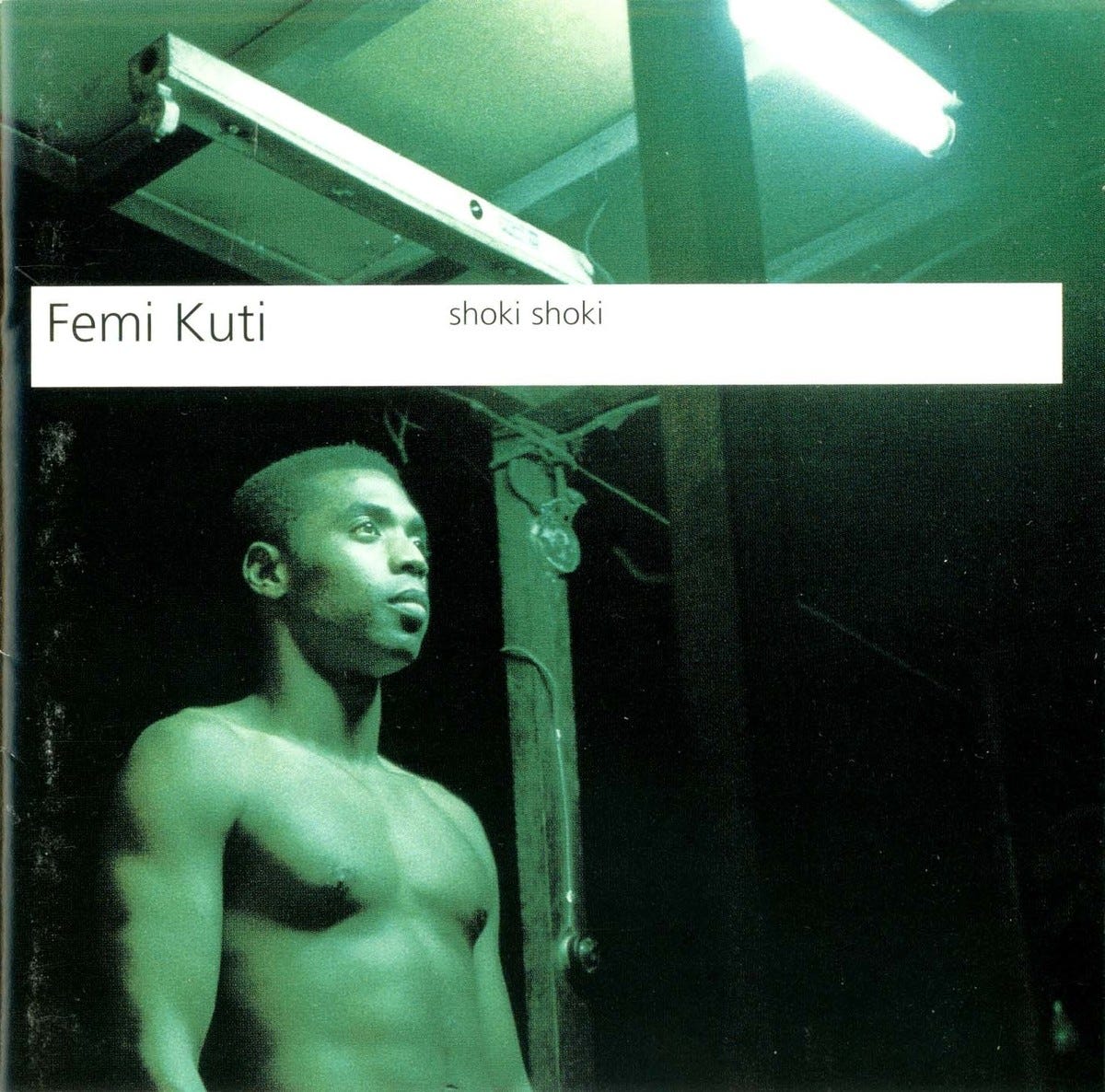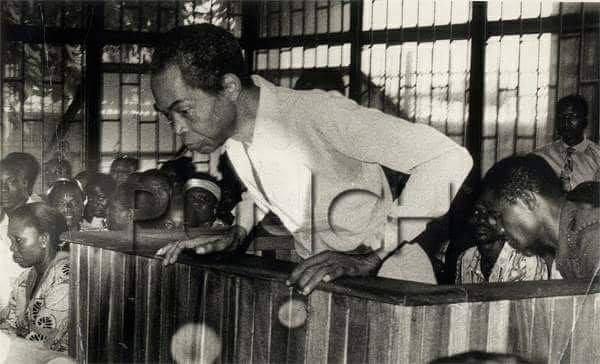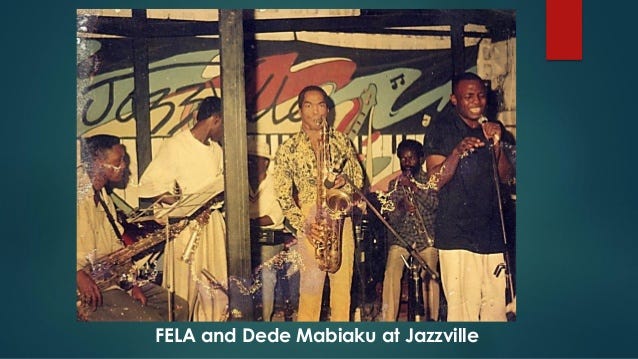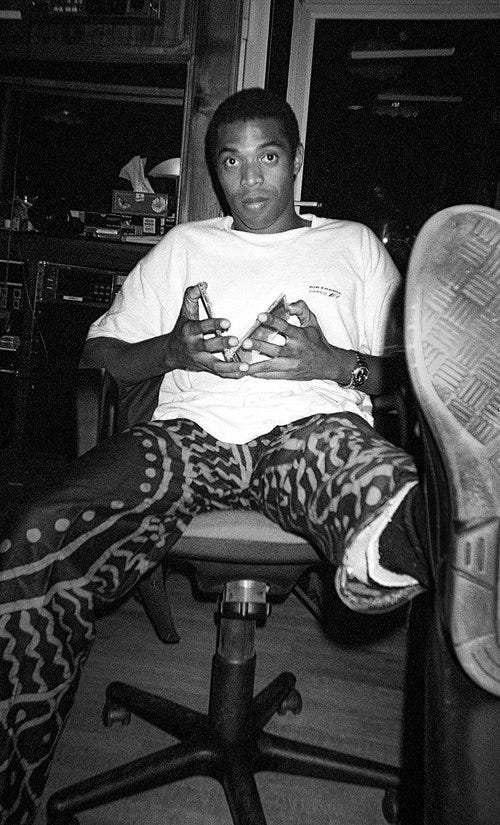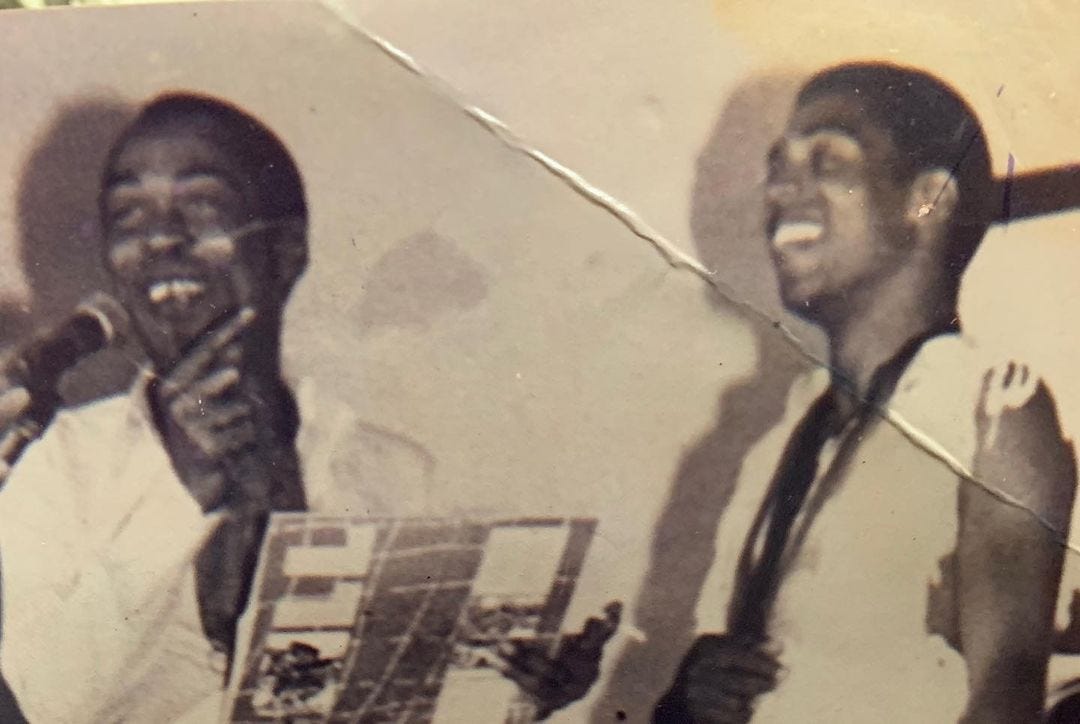Femi Kuti @ 60 - Why 'Shoki Shoki' remains his finest album yet
With personal tragedy and a record deal gone bad to deal with, Femi Kuti produced the album that propelled his career. This is the story.
To celebrate Femi Anikulapo-Kuti's 60th birthday, we go back in time to look at how the icon dealt with colossal family tragedies to deliver his breakthrough album, 'Shoki Shoki'.
In April 1997, pressmen gathered in Fela's communal haven, 'Kalakuta Republic', to speak with the Afrobeat progenitor. He had spent two weeks in custody of the National Drug Law Enforcement Agency (NDLEA) for marijuana possession and use.
At this informal press gathering, Fela held court. Even though he looked emaciated, he cracked jokes and dished witty barbs on his sofa. It wasn't only the members of the fourth realm of the estate that were at this gathering. Fela's protege Dede Mabiaku was present. More importantly, Fela's first son Femi was also there.
Femi Kuti was coming off an international tour in Africa, and Europe, backed by his hit single, 'Wonder Wonder', off his 1995 self-titled album, the third in his discography.
Femi's star was rising, but he still had his critics who felt he wasn't as authentic and challenging as his iconoclastic father. Some critics also said the hook of 'Wonder Wonder' was taken from Fela's 'Unknown Solider' record.
That was a blatant lie. Not only does 'Wonder Wonder' not borrow from 'Unknown Solider', but it also deviates from Fela's style of Afrobeat with a quicker tempo, neater arrangement and composition suitable for airplay.
Femi Kuti's career was almost thrown into jeopardy when Tabu Records (which had the legendary Motown Records as its distributor during this period) closed shop. Femi Kuti's record deal was gone.
Femi Kuti had detractors and label issues, but that was not his biggest headache. His father's health was depreciating. After months of worsening ill-health, Fela Anikulapo-Kuti passed away on August 2, 1997, due to complications related to AIDS.
The architect of Afrobeat was dead, and his demise was as monumental as the passing away of Nigeria's first president Nnamdi Azikwe a year before.
Thousands trooped to the Kalakuta Republic to pay their last respects. Radio played Fela's songs for weeks. TV aired countless interviews with Fela's friends, family members, colleagues and fans.
In one of the clips below, you can see Femi Kuti on the balcony at Kalakuta speaking to the huge crowd.
The national mourning period came to a climax when his body was displayed at the Tafewa Balewa Square in Lagos, where the Nigerian flag was raised for the first time on October 1, 1960.
According to different sources, 500,000 - 1,000,000 people came out to see Fela for the last time.
The Anikulapo-Kuti/Ransome-Kuti clan was about to be hit with more bad news.
Fela's cousin Frances Kuboye died 19 days after his death. Kuboye was a dentist and a talented singer. She was married to Tunde Kuboye, and together they formed the Jazz 38 Club in the 70s.
It would establish itself as the most important jazz hub in the country. Fela and Femi played there occasionally. You can watch a 1991 documentary about her below;
As the rap legend, Nas once said, "death comes in threes," a saying that would sadly come true for the Kuti family two months later.
Fela's second daughter, Sola Kuti, died of cancer circa October 1997, months after her father. The death of three close family members hit Femi Kuti hard. This painful moment in his life led to the creation of the song '97' off his 2001 album 'Fight To Win'. It’s an emotional song where Femi Kuti rehashes the pain and sorrow he faced during this dark period.


The grey clouds would pass soon after. In December 1997, Femi Kuti inked a deal with MCA. With this new deal, Femi Kuti released his fourth studio album 'Shoki Shoki'.
The album, produced by Sodi Marciszewer (who had worked on previous Fela albums), features nine tracks, all engineered by Mark Saunders.
The lead single was 'Beng, Beng, Beng,' a horn-powered, rump-inducing 4-minute sex cut.
It was an instant hit that got yanked off radio by the conservative Nigerian Broadcasting Commission (NBC) for its sexually explicit lyrics. The ban did not stop the song from being a success. Nor did it stop the album too.
With "Shoki Shoki', it became clear that Femi Kuti had perfected his style of Afrobeat that was tight, neater, and quicker. It was progressive also, as it incorporated acid jazz, Hip-Hop and neo-soul elements. He had perfected his own style while still embracing the philosophies of his father.
Femi Kuti opens the album with the bubbly 'Truth Don Die', which starts with a beckoning twang and quickly morphs into a stylish guitar riff backed by a powerful horn section and urgent drums.
In the song, 'What Will Tomorrow Bring', a Hip-Hop bassline and a sax solo that sweeps for answers lead Femi Kuti to ponder about the uncertainty of life.
"We get the wrong people for government who force us to think with colonial sense," sings Femi Kuti in pidgin English in the song 'Black Man Know Yourself'. He thinks that for an African renaissance to happen, we will have to do away with Western culture and embrace the ways of our ancestors.
'Shoki Shoki' is primarily filled with themes of black identity, consciousness, and anti-government rhetoric. These songs form the thematic spine of the project. They are concise, punchy and quick. They are contemporary, deviating from Fela’s classical approach.
On 'Scatta Head', he creates an evocative dazzling dance number about evading life's troubles or pleasures.
It's a beast of a song best described with the French word 'Fuck!' It never stops pounding the listener into sweet surrender, a pulp of pleasure. It will have you writhing in ecstasy. ‘Scatta Head’ comes to a rapturous conclusion when Femi Kuti delivers arguably his best sax solo.
The legacy of this album resides in the song 'Sorry Sorry'. In this song, Femi Kuti warns that nothing good will come out of the nation's politicians and its military leaders' plan to fix Nigeria. He sounds jaded as he warns about the false dawn of a new era.
Shoki Shoki came out the same year Nigeria's Head of State, General Sani Abacha, died. After his death, the military decided to hand over to a democratically elected government. Femi Kuti observed that there is no difference between Nigeria's military ruling class and politicians.
Over the years, Nigerians have become more disillusioned with their political elite. 'Sorry Sorry' has become the soundtrack of this disillusionment. This song can be heard in most nightclubs in Nigeria, even though Afrobeats is the definitive genre of today's youth. Its message is still relevant, and its heavy dance appeal is the layer of candy that surrounds the wokeness.
With the release of Shoki Shoki in 1998, internationally in 1999 and its success, Femi Kuti became the undisputed King of Afrobeat. He did it his own way and succeeded. No longer was he just Fela's son. At a time when there we so many questions about the future of Afrobeat and its legacy, he turned up spectacularly.
He delivered conscious music and fine-tuned them to the tastes of the modern-day listener. He also proved that legacy doesn’t always have to be a burden.
In 1999, Femi Kuti won the Best Male Artiste in Africa at Kora Awards in South Africa which was attended by Michael Jackson and Nelson Mandela. Post-Shoki Shoki, Femi Kuti's career has continued to rise.
He has snagged multiple GRAMMY nominations and has worked with international acts like Cold Play, Yasiin Bey (the artist formerly known as Mos Def), Common, and others.
Importantly, he has continued to lend his voice to social and political struggles in Nigeria.


